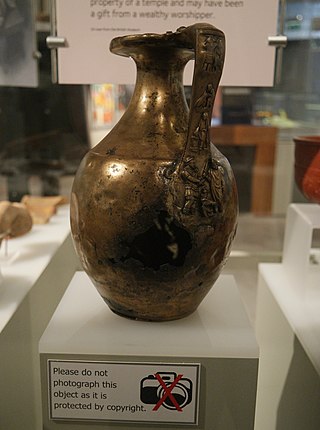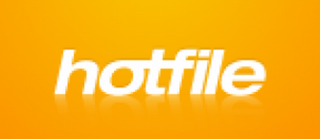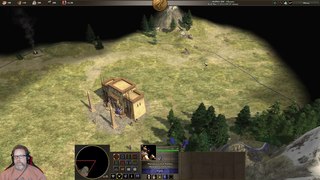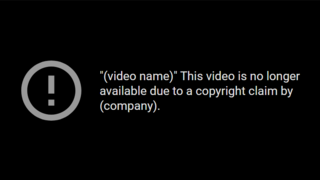A cease and desist letter is a document sent by one party, often a business, to warn another party that they believe the other party is committing an unlawful act, such as copyright infringement, and that they will take legal action if the other party continues the alleged unlawful activity. The letter may warn that, if the recipient does not discontinue specified conduct, or take certain actions, by deadlines set in the letter, the letter's recipient may be sued. The phrase "cease and desist" is a legal doublet, made up of two near-synonyms. A cease and desist letter issued by a government entity, called a cease and desist order, is "a warning of impending judicial enforcement".
Lumen, formerly Chilling Effects, is an American collaborative archive created by Wendy Seltzer and operated by the Berkman Klein Center for Internet & Society at Harvard University. It allows recipients of cease-and-desist notices to submit them to the site and receive information about their legal rights and responsibilities.

Students for Free Culture, formerly known as FreeCulture.org, is an international student organization working to promote free culture ideals, such as cultural participation and access to information. It was inspired by the work of former Stanford, now Harvard, law professor Lawrence Lessig, who wrote the book Free Culture, and it frequently collaborates with other prominent free culture NGOs, including Creative Commons, the Electronic Frontier Foundation, and Public Knowledge. Students for Free Culture has over 30 chapters on college campuses around the world, and a history of grassroots activism.

Online Policy Group v. Diebold, Inc., 337 F. Supp. 2d 1195, was a lawsuit involving an archive of Diebold's internal company e-mails and Diebold's contested copyright claims over them. The Electronic Frontier Foundation and the Stanford Cyberlaw Clinic provided pro bono legal support for the non-profit ISP and the Swarthmore College students, respectively.

A copyfraud is a false copyright claim by an individual or institution with respect to content that is in the public domain. Such claims are unlawful, at least under US and Australian copyright law, because material that is not copyrighted is free for all to use, modify and reproduce. Copyfraud also includes overreaching claims by publishers, museums and others, as where a legitimate copyright owner knowingly, or with constructive knowledge, claims rights beyond what the law allows.
Stream ripping is the process of saving data streams to a file. The process is sometimes referred to as destreaming.

The Online Copyright Infringement Liability Limitation Act (OCILLA) is United States federal law that creates a conditional 'safe harbor' for online service providers (OSP), a group which includes Internet service providers (ISP) and other Internet intermediaries, by shielding them for their own acts of direct copyright infringement as well as shielding them from potential secondary liability for the infringing acts of others. OCILLA was passed as a part of the 1998 Digital Millennium Copyright Act (DMCA) and is sometimes referred to as the "Safe Harbor" provision or as "DMCA 512" because it added Section 512 to Title 17 of the United States Code. By exempting Internet intermediaries from copyright infringement liability provided they follow certain rules, OCILLA attempts to strike a balance between the competing interests of copyright owners and digital users.
The Electronic Frontier Foundation (EFF) is an international non-profit advocacy and legal organization based in the United States.

The Digital Millennium Copyright Act (DMCA) is a 1998 United States copyright law that implements two 1996 treaties of the World Intellectual Property Organization (WIPO). It criminalizes production and dissemination of technology, devices, or services intended to circumvent measures that control access to copyrighted works. It also criminalizes the act of circumventing an access control, whether or not there is actual infringement of copyright itself. In addition, the DMCA heightens the penalties for copyright infringement on the Internet. Passed on October 12, 1998, by a unanimous vote in the United States Senate and signed into law by President Bill Clinton on October 28, 1998, the DMCA amended Title 17 of the United States Code to extend the reach of copyright, while limiting the liability of the providers of online services for copyright infringement by their users.
Notice and take down is a process operated by online hosts in response to court orders or allegations that content is illegal. Content is removed by the host following notice. Notice and take down is widely operated in relation to copyright infringement, as well as for libel and other illegal content. In United States and European Union law, notice and takedown is mandated as part of limited liability, or safe harbour, provisions for online hosts. As a condition for limited liability online hosts must expeditiously remove or disable access to content they host when they are notified of the alleged illegality.

Lenz v. Universal Music Corp., 801 F.3d 1126, is a decision by the United States Court of Appeals for the Ninth Circuit, holding that copyright owners must consider fair use defenses and good faith activities by alleged copyright infringers before issuing takedown notices for content posted on the Internet.

Hotfile was a one-click file hosting website founded by Hotfile Corp in 2006 in Panama City, Panama. On December 4, 2013, Hotfile ceased all operations, the same day as signing a $4 million settlement with the Motion Picture Association of America (MPAA); the settlement had previously been misreported as $80 million.

Ouellette v. Viacom, No. 9:10-cv-00133; 2011 WL 1882780, found the safe harbor provision of the Digital Millennium Copyright Act (DMCA) did not create liability for service providers that take down non-infringing works. This case limited the claims that can be filed against service providers by establishing immunity for service providers' takedown of fair use material, at least from grounds under the DMCA. The court left open whether another "independent basis of liability" could serve as legal grounds for an inappropriate takedown.

A Let's Play (LP) is a video documenting the playthrough of a video game, often including commentary and/or a camera view of the gamer's face. A Let's Play differs from a video game walkthrough or strategy guide by focusing on an individual's subjective experience with the game, often with humorous, irreverent, or critical commentary from the player, rather than being an objective source of information on how to progress through the game. While Let's Plays and live streaming of game playthroughs are related, Let's Plays tend to be curated experiences that include editing and narration, and can be scripted, while streaming is often an unedited experience performed on the fly.

Critical Commons is an online repository of user-generated media. The archive is a project of the Media Arts and Practice division of the USC School of Cinematic Arts. The project supports the fair use of copyrighted media by educators.

UMG Recordings, Inc. v. Shelter Capital Partners LLC, 667 F.3d 1022 No. 09-55902, was a United States Court of Appeals for the Ninth Circuit case in which UMG sued video-sharing website Veoh, alleging that Veoh committed copyright infringement by hosting user-uploaded videos copyrighted by UMG. The Ninth Circuit upheld the decision of the United States District Court for the Central District of California that Veoh is protected under the Digital Millennium Copyright Act's safe harbor provisions. It was established that service providers are "entitled to broad protection against copyright infringement liability so long as they diligently remove infringing material upon notice of infringement".

Operation In Our Sites is an ongoing effort by the U.S. government's National Intellectual Property Rights Coordination Center to detect and hinder intellectual property violations on the Internet. Pursuant to this operation, governmental agencies arrest suspects affiliated with the targeted websites and seize their assets including websites' domain names. Web users intending to access targeted websites are directed to the server operated by the U.S. government, and greeted with a graphic bearing the seals of the United States Department of Justice (DOJ), the National Intellectual Property Rights Coordination Center (NIPRCC), and U.S. Immigration and Customs Enforcement (ICE).
YouTube copyright issues relate to how the Google-owned site implements its protection methods. The systems are designed to protect the exclusivity of a given creator and owner and the rights to reproduce their work. YouTube uses automated measures such as copyright strikes, Content ID and Copyright Verification Program. These methods have been criticized for favoring corporations and their use of copyright claims to limit usage of uploaded content.

YouTube copyright strike is a copyright policing practice used by YouTube for the purpose of managing copyright infringement and complying with the Digital Millennium Copyright Act (DMCA). The DMCA is the basis for the design of the YouTube copyright strike system. For YouTube to retain DMCA safe harbor protection, it must respond to copyright infringement claims with a notice and take down process. YouTube's own practice is to issue a "YouTube copyright strike" on the user accused of copyright infringement. When a YouTube user gets hit with a copyright strike, they are required to watch a warning video about the rules of copyright and take trivia questions about the danger of copyright. A copyright strike will expire after 90 days. However, if a YouTube user accumulates three copyright strikes within those 90 days, YouTube terminates that user's YouTube channel, including any associated channels that the user have, removes all of their videos from that user's YouTube channel, and prohibits that user from creating another YouTube channel.
youtube-dl is a free and open source software tool for downloading video and audio from YouTube and over 1,000 other video hosting websites. It is released under the Unlicense software license.











